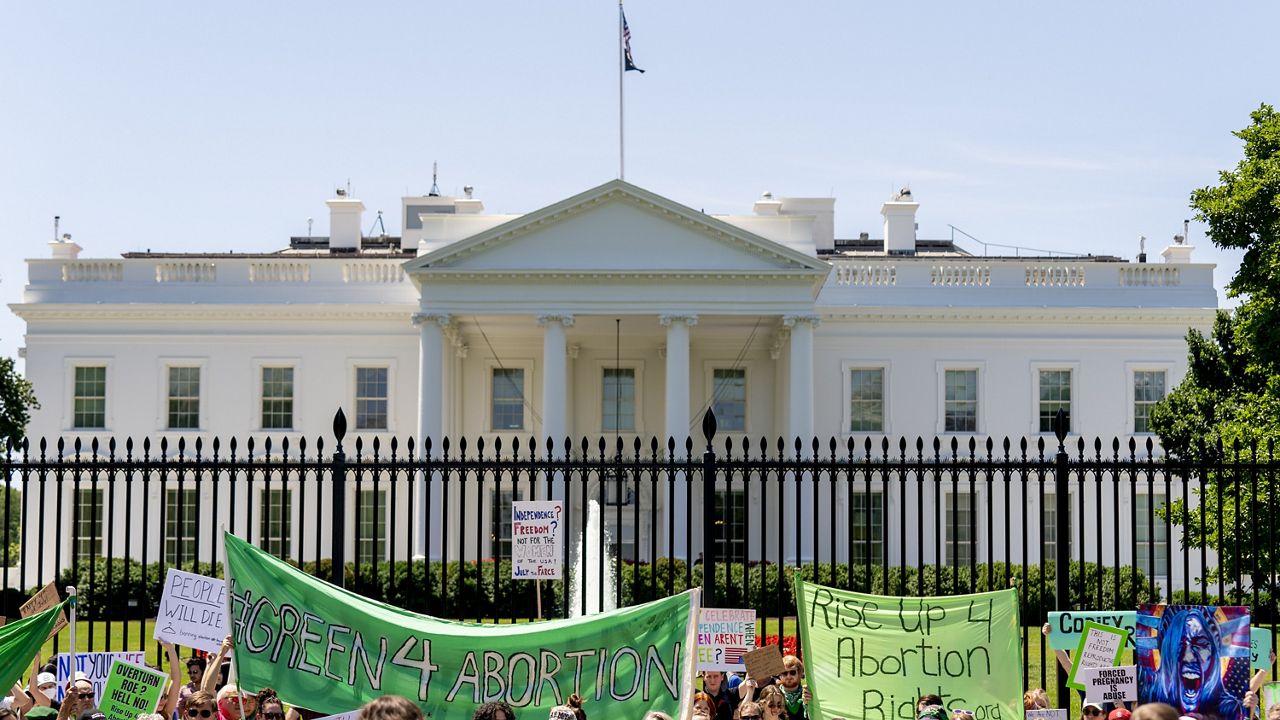Just shy of a year since the overturning of Roe v. Wade, the White House on Wednesday kicked off a two-day event hosting state lawmakers from around the country to discuss abortion access.
More than 80 state legislators are joining Biden administration officials for conversations about policy agenda to counter efforts in Republican-led states to restrict reproductive rights, according to the White House. Thursday’s discussions were set to include lawmakers from states in which abortion is still widely accessible, while Wednesday focused on Democratic lawmakers in states with Republican-dominated legislatures.
“We talked about a lot of strategies, we shared ideas,” Ohio Senate Minority Leader Nickie Antonio said. “And I think the common thread through everything is that people in all of our states are rising up and they're fighting back.”
“It’s important to bring them in and to tell them ‘hey we have your back, that we see you, we appreciate the fight that you have been doing and we are partners with you on moving forward,” press secretary Karine Jean-Pierre said at a briefing on Wednesday.
June 24 marks the one-year anniversary of the decision in Dobbs v. Jackson Women’s Health Organization, which struck down Roe v. Wade and returned the issue of abortion to the states. Since then, many Republican-controlled legislatures across the country have restricted or banned the practice.
For instance, last month, South Carolina Gov. Henry McMaster signed a bill banning most abortions around six weeks of pregnancy. In a statement he said, “With my signature, the Fetal Heartbeat and Protection from Abortion Act is now law and will begin saving the lives of unborn children immediately.”
A judge swiftly put the ban on hold until the state Supreme Court reviews the measure. South Carolina state Sen. Margie Bright Matthews, who attended Wednesday’s event, said she was ‘feeling nervous” about what the court will decide.
“They forced that six-week ban bill without even having a committee hearing on it,” Matthews said.
Tennessee Rep. Gloria Johnson also took part in talks Wednesday and said lawmakers discussed culture and climate in their legislatures.
“It's just been so great to hear from other states, what works, what doesn't work, what they've been doing,” Johnson said.
Johnson was one of the three Democratic state lawmakers who faced an expulsion vote from the Republican-controlled Tennessee legislature for a protest on the House floor urging passage of gun-control measures following a deadly school shooting in the state. Reps. Justin Jones and Justin Pearson were expelled but have since been reinstated, while Johnson narrowly escaping banishment.
Johnson believes that experience and the attention it received nationwide shed light on other issues at the Tennessee State Capitol, such as abortion.
“It really is like this light just shone in, the windows broke open and the light shone in on the [Tennessee] Capitol and the entire country saw what was happening and saw the erosion of Democracy,” Johnson said.
When asked about what, if anything, tangible the White House hopes will come from these discussions, Jean-Pierre focused on the significance of inviting lawmakers “who have literally been on the front lines of a freedom that has been eroded.”



